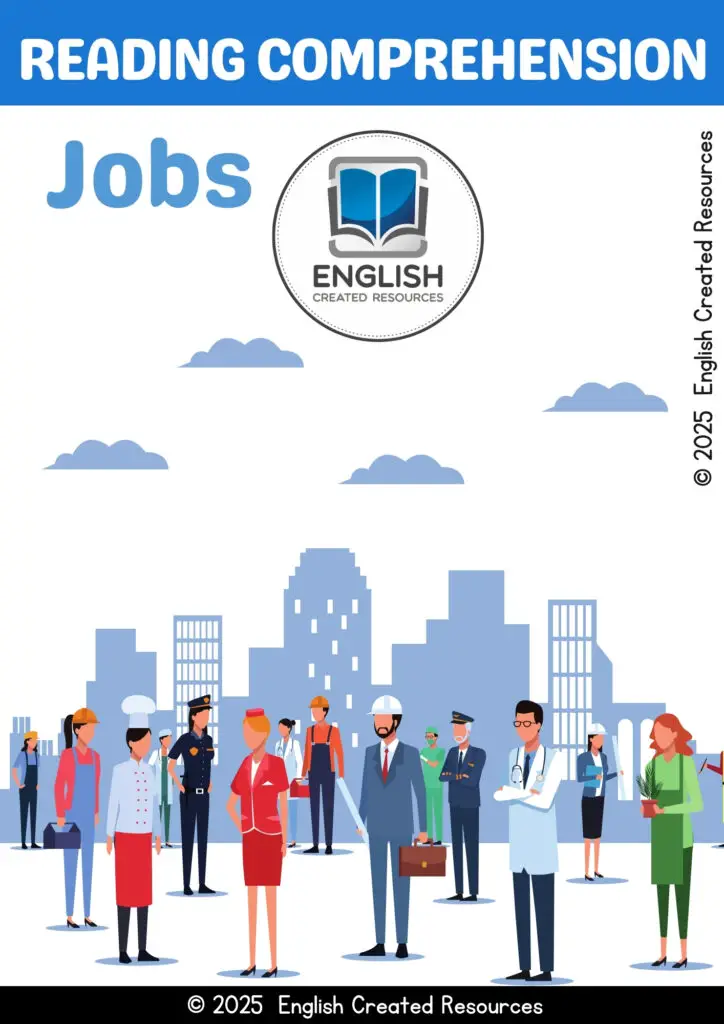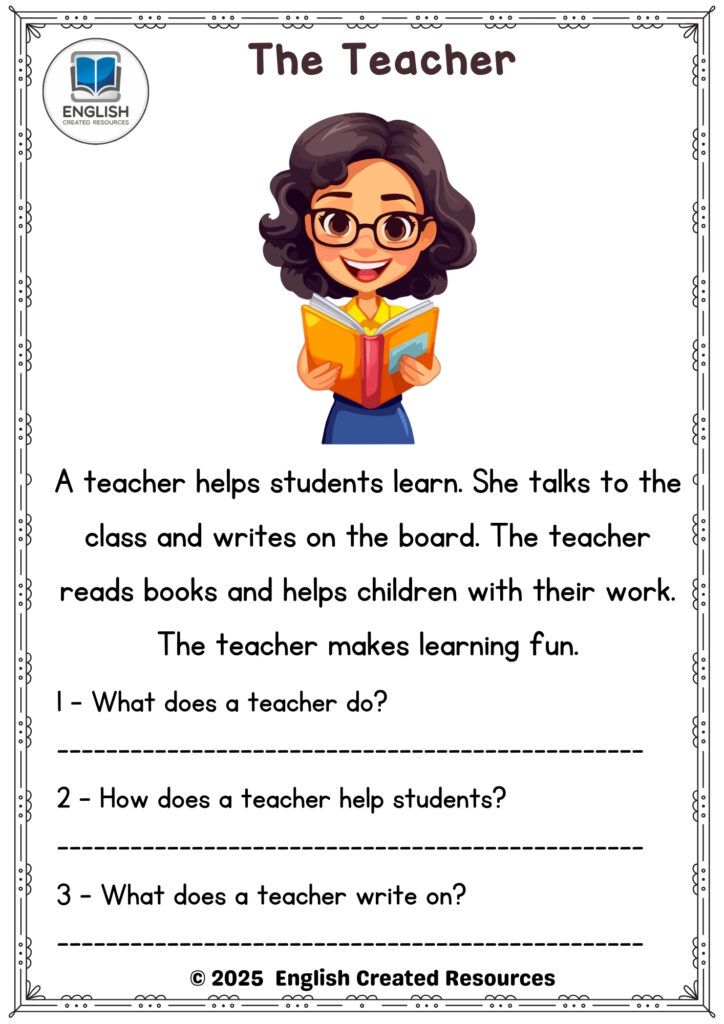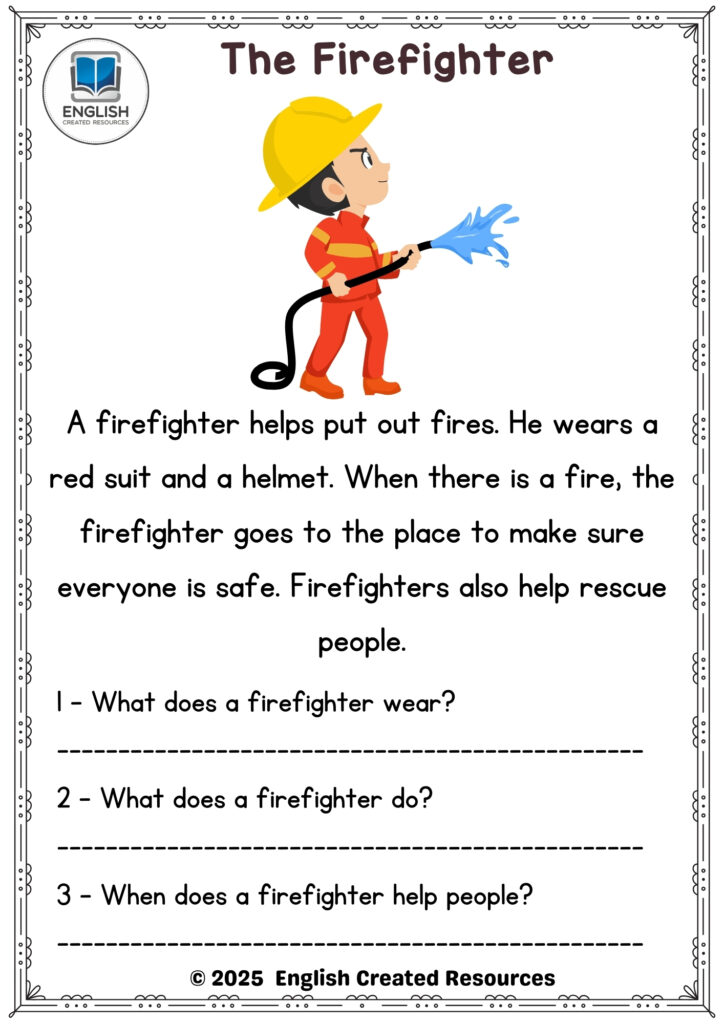Reading Comprehension Jobs

Reading Comprehension Jobs
Reading comprehension is an essential skill that forms the foundation for academic success and lifelong learning. For grade one students, developing this skill is crucial, as it not only helps them understand the material they are reading but also builds their cognitive, linguistic, and critical thinking abilities. At this early stage of education, students are introduced to the basics of reading, including letter sounds, word recognition, and sentence formation. As they progress, their ability to comprehend what they read becomes more important. In this essay, we will explore the significance of reading comprehension for grade one students and how it can help improve various skills.
- Foundation for Academic Success
In grade one, students are at a pivotal stage where they are moving from learning to read to reading to learn. This transition is a major milestone in a child’s educational journey. Reading comprehension plays a critical role in this shift. If students cannot understand what they read, they will struggle to retain and apply the knowledge gained from books, lessons, and educational materials. Strong reading comprehension skills help students understand texts more clearly, making it easier for them to retain information and succeed in other areas of study, such as math, science, and social studies. For example, in math, students often need to read and comprehend word problems, and in science, they must understand instructions or concepts described in textbooks.
Reading comprehension is not just about understanding individual words or sentences, but about making sense of the overall meaning of a text. For grade one students, comprehending stories, instructions, or simple informational texts can significantly enhance their learning experience and lay the groundwork for future academic achievements.
- Enhancing Vocabulary and Language Skills
Reading comprehension plays an essential role in expanding a child’s vocabulary. As first-grade students read and comprehend texts, they are exposed to new words, phrases, and sentence structures. When they understand these words within the context of the story or passage, they can remember and use them in their speaking and writing. This exposure broadens their language skills and helps them develop a richer, more sophisticated vocabulary.
For instance, when a student reads a story that includes words they are unfamiliar with, such as “adventure,” “excited,” or “mysterious,” they are likely to understand these words better if they can grasp the context in which they are used. Additionally, reading comprehension helps students make connections between new words and words they already know, which further enhances their language development. The more a student reads and comprehends, the more opportunities they have to expand their vocabulary and improve their communication skills.
- Developing Critical Thinking and Problem-Solving Skills
Reading comprehension goes beyond simply understanding words and sentences—it encourages students to think critically about what they are reading. First graders can learn to ask questions, make predictions, and draw conclusions based on the text. These activities help develop problem-solving skills that are essential not only in academics but in everyday life as well.
For example, a student reading a story about a character who faces a challenge might be encouraged to think about what solutions the character could consider. Students can be asked questions like, “What do you think will happen next?” or “Why do you think the character made that choice?” These questions require the student to analyze the text, think logically, and form connections. By practicing this kind of critical thinking, students begin to develop skills that will serve them in many other areas, both inside and outside the classroom.
- Improving Listening and Speaking Skills
In grade one, reading comprehension also contributes to the improvement of listening and speaking abilities. When students are encouraged to listen to stories being read aloud and then discuss the material with their peers or teachers, they practice important skills related to comprehension, such as active listening and verbal expression. They learn to summarize key details from the story, express their thoughts clearly, and engage in discussions about what they read.
By participating in group discussions or class activities, students can reinforce their understanding of the text while improving their ability to listen attentively and articulate their thoughts. These skills are vital for effective communication and contribute to building strong interpersonal skills that are crucial for academic and social success.
- Building Confidence and Motivation to Read
When first-grade students understand what they read, they become more confident in their abilities. The process of reading and comprehending simple texts builds their self-esteem and encourages them to take on more challenging reading material. As they experience success in understanding stories, they are more likely to develop a love for reading and become motivated to explore new books and genres.
Reading comprehension also fosters a sense of accomplishment. For example, after reading a story and answering comprehension questions or retelling the plot, students feel proud of their achievement. This sense of achievement reinforces their desire to continue reading and learning. Over time, this motivation leads to better reading habits, greater academic success, and a lifelong interest in reading.
- Improving Writing Skills
Reading comprehension and writing skills are closely linked. As students become better at understanding what they read, they can apply the knowledge they gain to their writing. First-grade students who comprehend texts well can learn to express themselves more effectively in writing by mimicking sentence structures, using new vocabulary, and drawing inspiration from the content they read.
For example, after reading a story, students may be asked to write about the characters, setting, or events in their own words. This exercise not only reinforces their understanding of the story but also encourages them to organize their thoughts and express ideas clearly. Writing after reading helps students process and solidify what they have learned, further strengthening their overall literacy skills.
- Promoting Emotional and Social Development
Reading comprehension can also support emotional and social development by allowing first graders to connect with the characters and situations in the stories they read. As students read stories with characters who face challenges or experience emotions like happiness, fear, or sadness, they learn to empathize with others. These emotional connections help children develop a greater understanding of human behavior and emotions, which is important for building social skills and emotional intelligence.
For example, a story about friendship can teach students about cooperation, sharing, and resolving conflicts. A story about a character overcoming fear can help students relate to their own experiences of courage. These social and emotional lessons are essential for personal development and help students navigate their relationships with others.
Reading comprehension is a critical skill that helps grade one students in many areas of their academic, social, and emotional development. By improving their ability to understand what they read, students enhance their vocabulary, critical thinking, communication skills, and emotional intelligence. Furthermore, reading comprehension fosters confidence and motivation to read, creating a cycle of success that benefits students throughout their educational journey. As students continue to develop their reading comprehension skills, they are better equipped to succeed in school and in life. Therefore, it is essential to focus on cultivating reading comprehension in young learners to set them up for future academic achievement and personal growth.
Samples From the Texts





